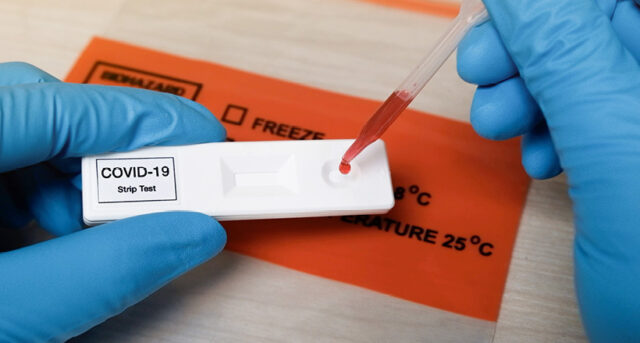It’s been a December few employers will wish to remember, with sickness absences for the month rising by 147% from 2020 to 2021 due to the Omicron variant.
New statistics released today by BrightHR also show a 72% increase of sickness instances in 2021 compared to 2020, with a 58% increase in the number of employees taking at least one sick day.
2020 = 184,704 sickness instances, 13% of all employees taking at least one sick day
2021 = 318,391 sickness instances, 21% of all employees taking at least one sick day
For millions of employees across the UK, today is their first day back following the Christmas break, but the highly transmissible Omicron variant has led to many self-isolating and unable to go to work. Schools, the NHS, and the transport sector have all been heavily impacted.
Ministers are being warned to develop ‘robust contingency plans’ in preparation for workplace absences of up to 25% to help limit disruption, especially for industries where staff are unable to work from home.
Jenny Marsden, Director of Service at BrightHR, says: “It is clear to see the impact that Omicron has had on the number of sickness days taken in December, compared with the same time last year. At BrightHR we use smart software to track absence rates. Being able to compare information year on year makes it easy to identify and analyse trends such as this.
“One area of particular concern for employers is travel. As COVID-19 cases have substantially risen over the last few weeks, industries such as the travel sector have been greatly impacted. With a reported 6,000 train staff absent, including crew members and drivers, this has a profound impact, not only on the transport industry but also on everyone who commutes to and from work.
“Rail passengers are facing reduced timetables, and short-notice cancellations as more than 1 in 10 rail workers are absent. There is potential that this could cause chaos for commuters.
“Employers should prepare for an increase in workplace absences and have concrete plans in place to deal with staff shortages in the coming weeks as cases increase, and travel disruptions continue.
“Not only is it important staff get to work safely, but also, to ensure they feel safe at work. That’s why it’s still important to maintain a COVID- secure workplace and regularly encourage hand washing and the mandatory use of face masks.”




